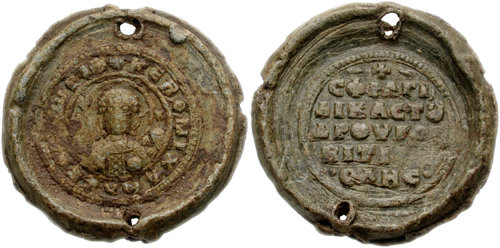Many linguists say that at some time all the way to Moscow Baltic language was spoken,later replaced by Slavic according to toponyms.
I guess it wasn't so hard for Baltic speaker to adopt Slavic language,the 10th century seem plausible with Christianisation,Old Church Slavic was liturgic language,recognized and with it's own alphabet,whereas the Baltic speakers were marginalized.
Eastern Galindians (Голядь) were Balts living in what's today western Moscow region, as well as outskirts of Moscow. It's unclear if eastern Golindians were western, eastern or so-called Dniepr Balts. Moscow derives its name from Moscow (Moskva) river. The hydronym is Baltic in origin. Moskva has similar etymology to the following Baltic terms
Lithuanian mazgoti - to wash
Latvian mazgāt - to wash
Latgalian mozgova - washed.
Linguist specialising on Baltic languages Toporov wrote Ancient Moscow in Baltic perspective
Топоров В. Н. Древняя Москва в балтийской перспективе // Балто-славянские исследования 1981. М., 1982. . Источник : http://www.inslav.ru/images/stories/books/BSI1981(1982).pdf
Text in Russian
http://s2.postimg.org/ydib1laq1/image.png
http://s24.postimg.org/bk9pfgn9h/image.png



